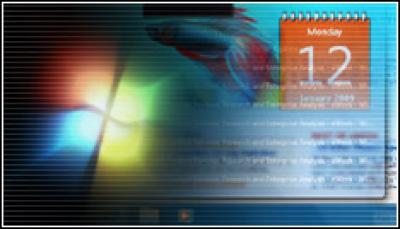Microsoft Claims Most Notebooks Run Windows

Dell, Hewlett-Packard and other makers have been focusing on feeding increased public demand for netbooks in the midst of the global recession
Microsoft claims that Windows runs on 96 percent of the mininotebooks known as netbooks that currently constitute one of the fastest-growing segments of the IT hardware industry.
Hardware companies such as Dell, Hewlett-Packard and Asustek Computer have all plunged into manufacturing netbooks, which are compact units that trade weight and computing power for connectivity and portability, and whose adoption on the enterprise side could eventually be driven by an increasingly mobile work force demanding an array of connected devices while on the road.
“Initially, some in the industry viewed low-cost netbook PCs as a new challenge for Microsoft and an opportunity for Linux to make inroads in the consumer market,” Brandon LeBlanc, a Windows communications manager, wrote on the Windows Experience Blog. “In fact, the exact opposite turned out to be true—a number of analysts and researchers following the space see ample evidence indicating customers really do want netbook PCs to work like their larger brethren—and that the way the vast majority of consumers make that happen is by buying a netbook PC with Windows.”
According to LeBlanc, who in turn quotes data from research company NPD Group’s Retail Tracking Service, the Windows-equipped netbook market—where netbooks are defined as systems with a 10.2-inch or smaller screen and which retail for under $500—jumped from below 10 percent in the first half of 2008 to 96 percent in February 2009.
Overall, the NPD Group said, laptop sales growth in 2008 was 21 percent with netbooks and 16 percent without them. In December 2008, netbooks accounted for about 12 percent of the total volume of laptops sold in the United States.
Despite earlier fears among hardware manufacturers that netbooks would cannibalize the market for more expensive PCs, such fears seem to be overblown, according to a number of analysts and industry leaders.
LeBlanc went on to cite one British retailer as saying the customer return rate for Linux-installed netbooks was 20 percent higher than for Windows-equipped netbooks.
“[Windows is] easier to use, just works out of the box with people’s stuff and ultimately offers more choice,” he said, by way of explaining this data.
Netbook adopters may be coming to Windows-equipped notebooks out of familiarity.
“Consumers want to buy something that’s comfortable,” Steve Baker, an NPD Group analyst, said in an interview. “They want to buy something they know. Products without that are confusing; they’re more intimidating than what people want.”
Microsoft has been testing Windows 7, the newest version of its operating system due later in 2009, for use on netbooks.